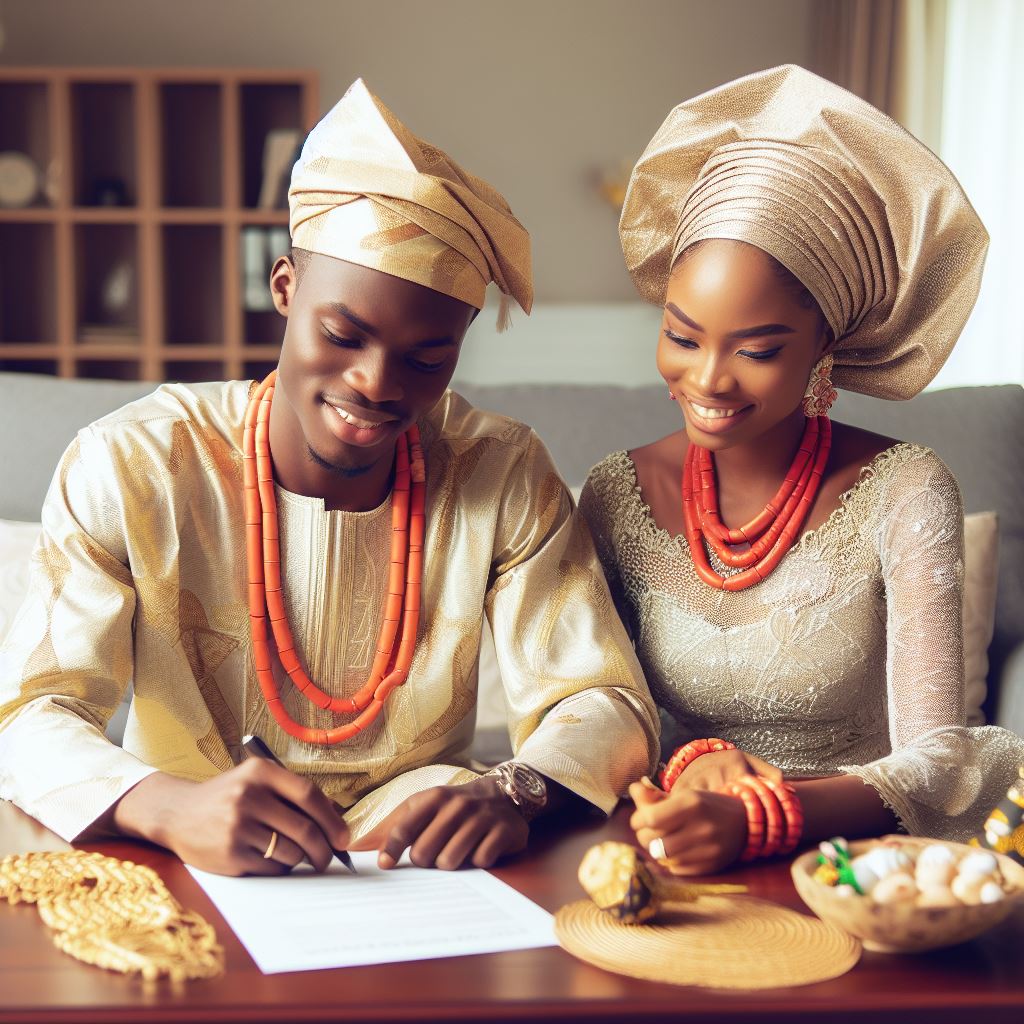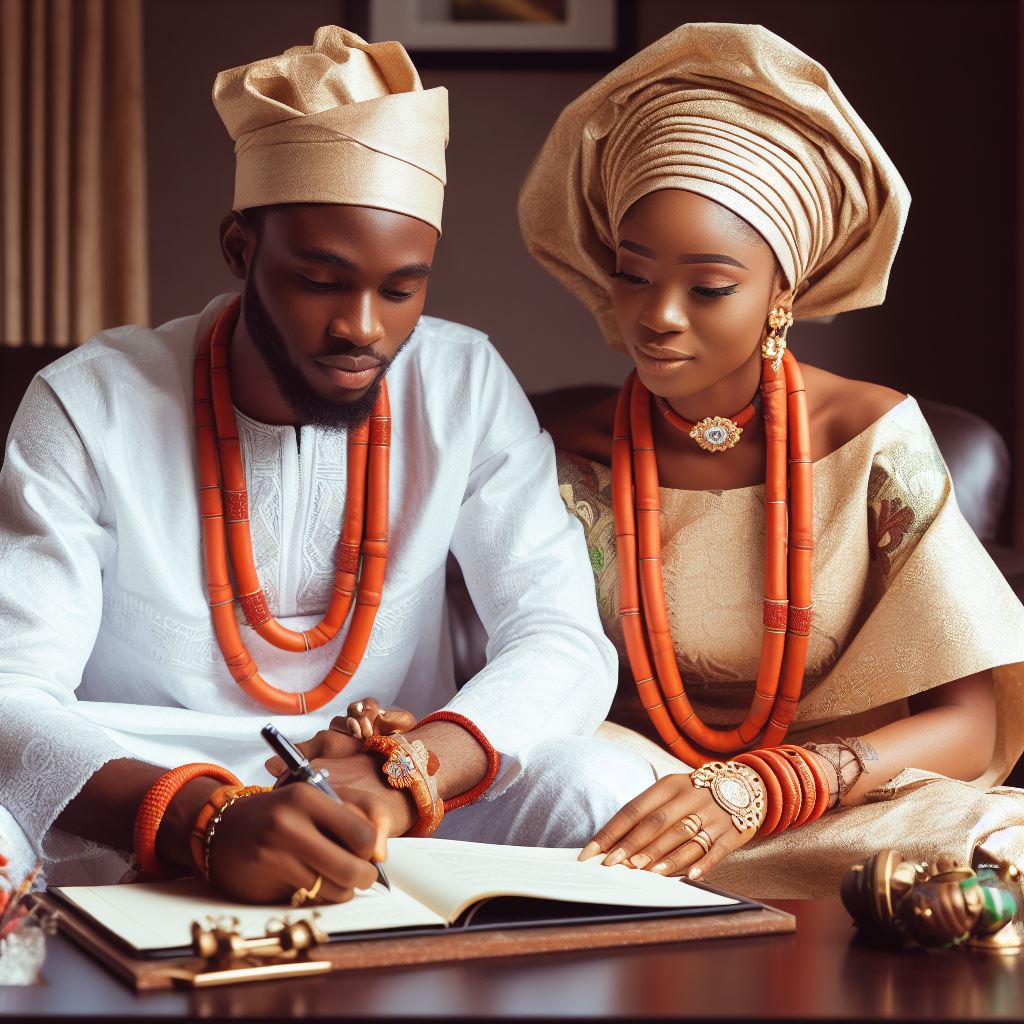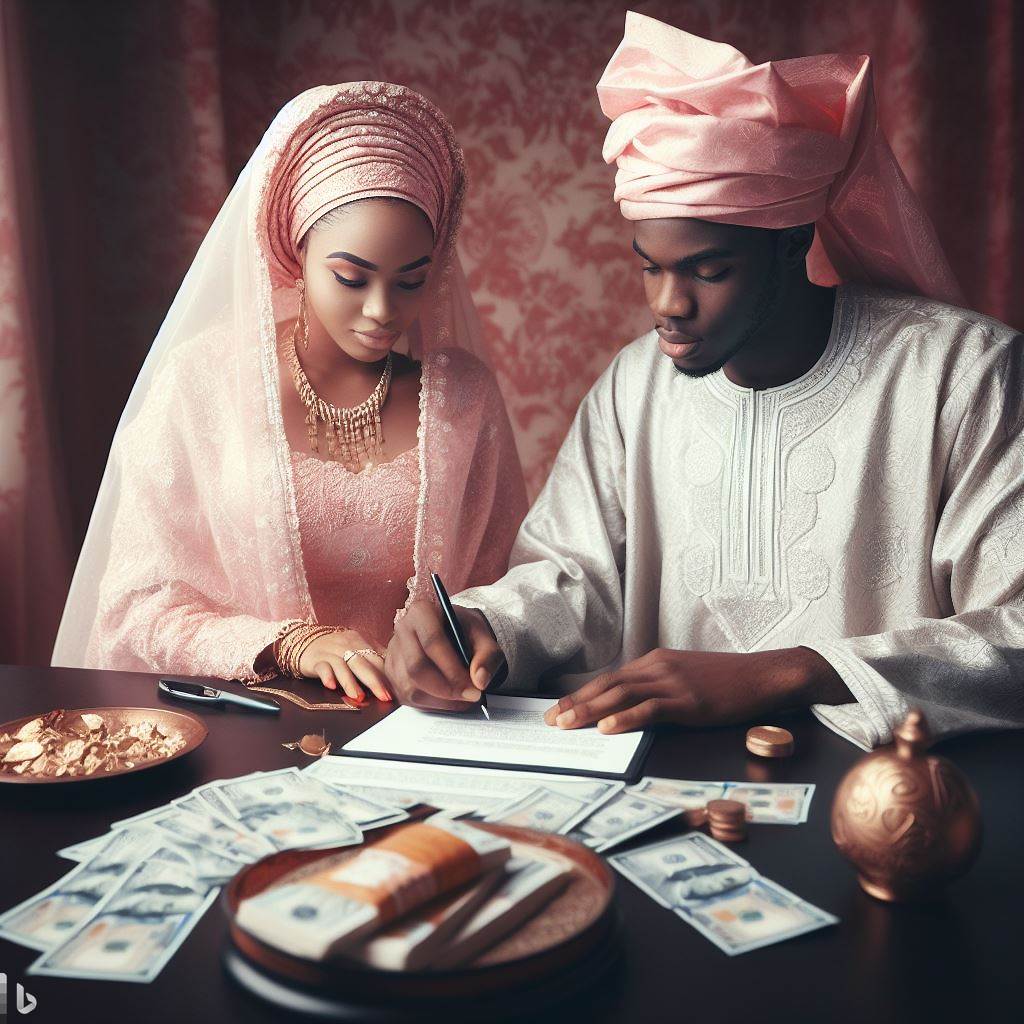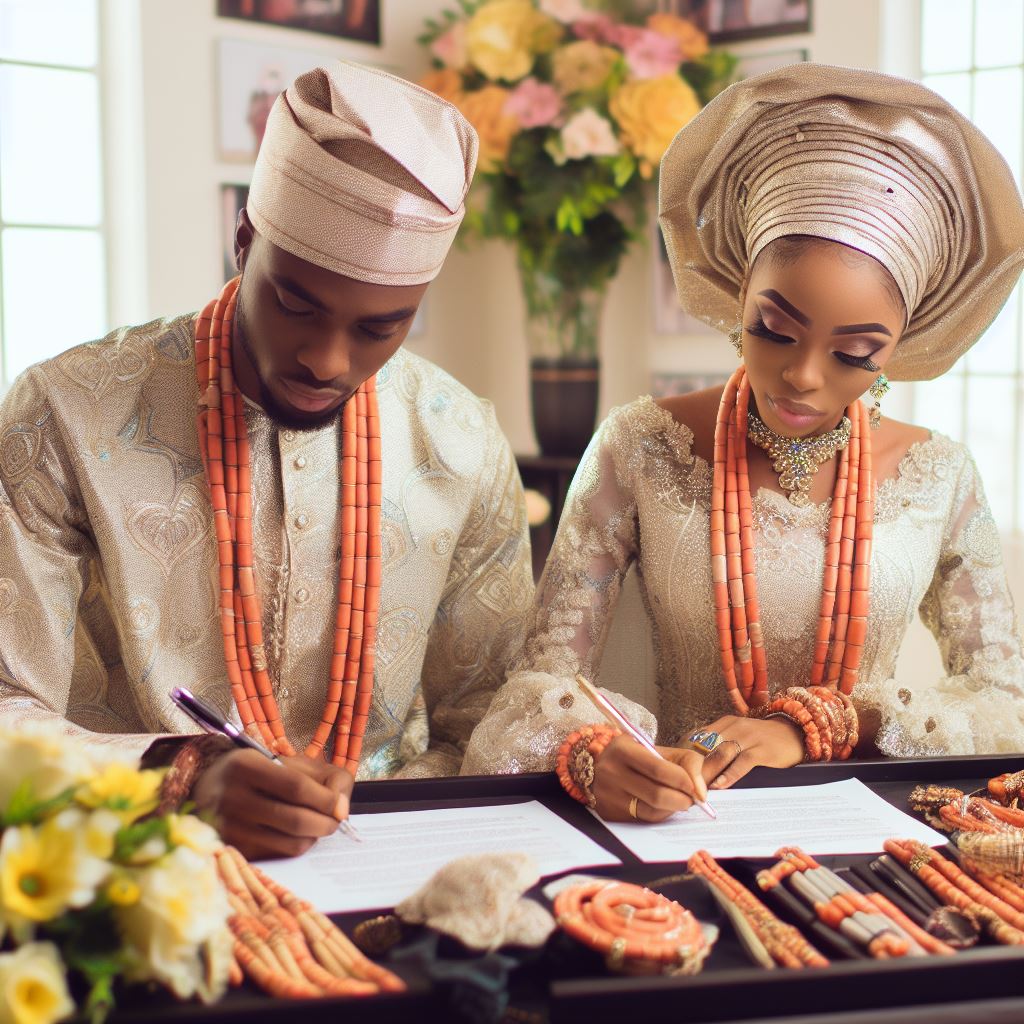Introduction
Brief overview of the importance of Nigerian marriage forms
Marriage is a sacred institution in Nigeria, and the completion of marriage forms is essential for legal recognition.
These forms serve as vital documents to validate the marriage and protect the rights of both parties involved. However, the role of witnesses in completing these forms cannot be overstated.
Thesis statement highlighting the role of witnesses
Thesis Statement: Witnesses play a crucial role in completing Nigerian marriage forms, ensuring the validity and legality of the marriage.
Understanding Nigerian Marriage Forms
Purpose and significance of Nigerian marriage forms
- Nigerian marriage forms serve as legal documents that validate and record marriages in Nigeria.
- These forms play a crucial role in providing evidence and documentation of marriages.
- Marriage forms are vital in establishing legal rights, obligations, and benefits for the individuals involved.
Different types of marriage forms used in Nigeria include
1. Customary Marriage Form
- This form is used for marriages conducted under customary law, which is prevalent in many Nigerian tribes.
- It includes details about the bride, groom, their families, and witnesses who validate the marriage.
- The form also contains information about the payment of dowry or bride price.
2. Christian Marriage Form
- This form is used for marriages solemnized in Christian churches in Nigeria.
- It includes details about the couple, their personal information, and their intent to marry.
- Witnesses, usually close family members or friends, are required to sign the form to validate the marriage.
3. Islamic Marriage Form
- This form is used for marriages conducted in accordance with Islamic customs and principles.
- It includes details about the bride, groom, and their respective guardians or walis.
- Witnesses, who are often members of the Muslim community, sign the form to certify the marriage.
4. Court Marriage Form
- This form is used for marriages conducted in a registry or court of law.
- It includes details about the couple, their identification documents, and their intention to marry.
- Witnesses, usually present during the ceremony, sign the form to validate the marriage.
In short, Nigerian marriage forms play a pivotal role in the legal system of Nigeria. They serve to validate marriages, provide documentation, establish legal rights, and uphold cultural traditions.
Understanding the purpose and significance of these forms is essential for individuals seeking to enter into a legally recognized and binding marriage in Nigeria.
Read: Traditional vs. Modern: Marriage Anniversary Wishes in Nigeria
The Role of Witnesses in Nigerian Marriages
Marriage is a sacred institution that requires certain legal procedures to be followed in order to be recognized by the state and society.
In Nigeria, one of these important procedures is the role of witnesses in completing the marriage forms.
Legal Requirements
Specific legal requirements for witnesses
- When it comes to witnesses in Nigerian marriages, there are specific legal requirements that need to be fulfilled.
- Witnesses are required to be present during the marriage ceremony. Their presence ensures that the marriage is not only a private affair but also a legally recognized union.
Number of witnesses required for different types of marriage
- The number of witnesses needed varies depending on the type of marriage.
- For customary and Islamic marriages, two witnesses are typically needed.
- On the other hand, for civil and church weddings, at least one witness is usually required.
- These requirements aim to provide additional assurance and validation of the marriage.
Criteria for Selecting Witnesses
- Certain criteria must be met when selecting witnesses.
- They should be of sound mind, meaning they have the mental capacity to understand the nature and implications of the marriage.
- Additionally, witnesses must be at least 18 years old to fulfill the legal age requirement.
Responsibilities and Duties of Witnesses
Witnesses in Nigerian marriages have specific responsibilities and duties to fulfill.
Role in verifying the identity of the bride and groom
- Firstly, they play a crucial role in verifying the identity of the bride and groom.
- By personally knowing and identifying the individuals getting married, witnesses add an extra layer of authentication to the marriage.
Witnessing the marriage ceremony
- During the marriage ceremony, witnesses are required to be present.
- They witness the entire process, ensuring that all the necessary rituals and vows are exchanged.
- This presence not only confirms the occurrence of the marriage but also plays a significant role in cementing the legality and validity of the union.
Signing the marriage forms
- One of the main duties of witnesses is to sign the marriage forms.
- Their signatures indicate their presence and reaffirm their role in the marriage.
- These signed forms serve as legal documentation of the marriage and are often required for official purposes, such as obtaining a marriage certificate.
Legal Implications of Witnesses
Ensuring the legality and validity of the marriage
- Witnesses hold legal implications in Nigerian marriages that should not be taken lightly.
- By fulfilling their role and responsibilities, they ensure the legality and validity of the marriage.
- Their presence and participation act as safeguards against potential fraudulent marriages.
Importance of witnesses in preventing fraudulent marriages
- Witnesses are instrumental in preventing the occurrence of sham marriages.
- Their presence and knowledge of the bride and groom’s identity help protect the interests of all parties involved.
- This is particularly important in cases where individuals may enter into marriages for ulterior motives, such as immigration fraud or financial gain.
Consequences of providing false witness information
- Providing false witness information, intentionally or unintentionally, can have serious consequences.
- Misrepresenting facts or identities can not only invalidate the marriage but also expose the witnesses to legal penalties.
- It is crucial for witnesses to fulfill their duties truthfully and with full awareness of the legal implications involved.
Essentially, witnesses have a significant role in ensuring the legality and validity of Nigerian marriages.
They contribute to the authentication of the marriage, prevention of fraudulent unions, and protection of the interests of the parties involved.
By understanding the legal requirements and responsibilities of witnesses, couples and witnesses themselves can navigate the marriage process with confidence and integrity.
Read: Romantic Anniversary Wishes: Echoing Nigerian Love Stories
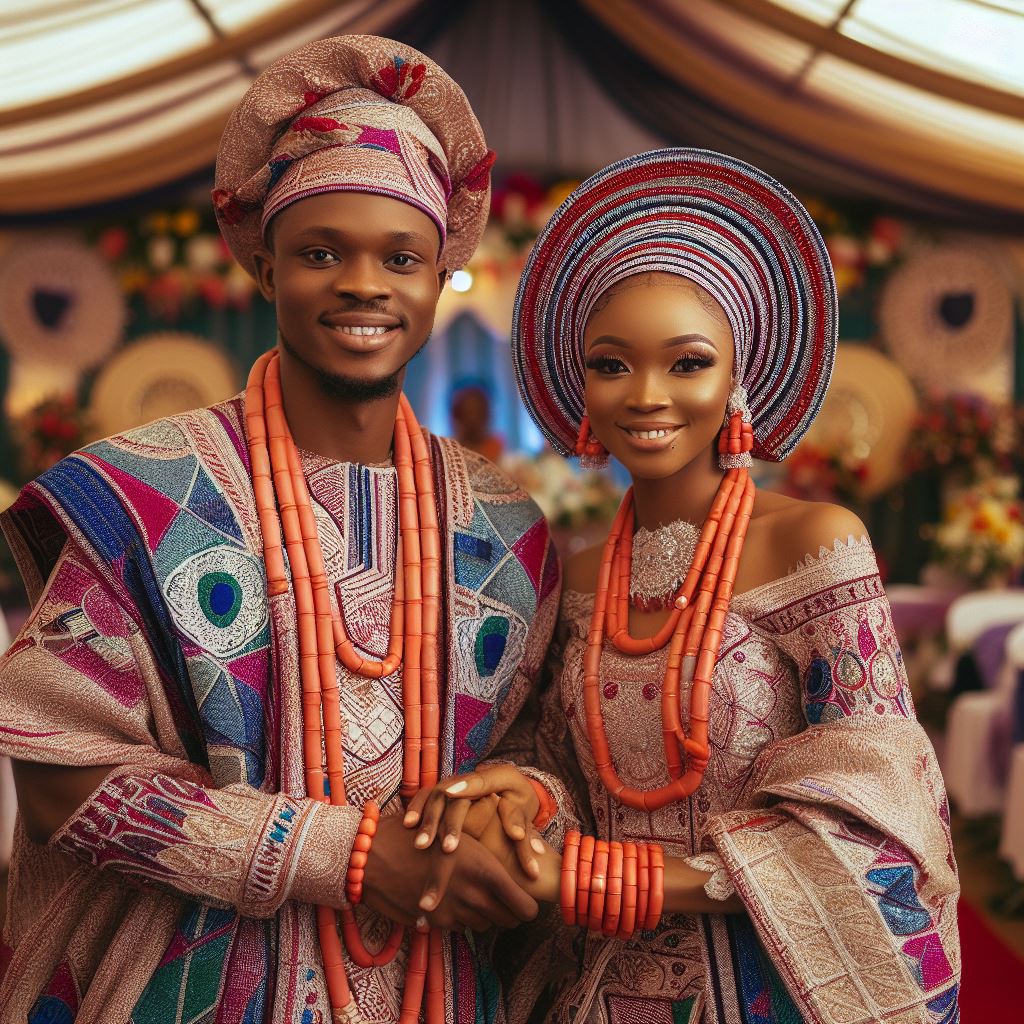
Importance of Accurate and Reliable Witnesses
Building Trust and Authenticity
- Role of witnesses in strengthening the credibility of marriage documents.
- How reliable witnesses ensure the authenticity of the marriage forms.
Safeguarding Marital Rights
- Ensuring both parties’ consent and willingness to enter the marriage.
- Witnesses as witnesses for any potential disputes in the future.
Read: Yoruba, Igbo, Hausa: Anniversary Messages for Every Tribe
Challenges in Finding Suitable Witnesses
In completing Nigerian marriage forms, one of the significant challenges that couples often face is finding suitable witnesses.
This blog section will explore two main challenges in detail: cultural and social factors influencing witness selection, and the importance of identifying and verifying potential witnesses.
Cultural and Social Factors
1. Impact of traditional customs and cultural practices on witness selection
- In many Nigerian communities, marriage ceremonies are deeply rooted in traditional customs.
- These customs often dictate specific roles and responsibilities for individuals involved in the marriage process, including witnesses.
- Choosing witnesses who are well-respected members of the community and who embody the values and traditions of the culture is highly prized.
- However, the adherence to these traditional customs can limit the pool of potential witnesses, making it difficult for couples to find individuals who meet the required criteria.
2. Availability of witnesses in urban and rural areas
- Another challenge faced by couples is the availability of witnesses, depending on whether they reside in urban or rural areas.
- Urban areas generally have a more diverse and populous community, providing a larger selection of individuals who can serve as witnesses.
- On the other hand, rural areas may have limited options due to smaller populations and close-knit communities.
- Consequently, couples in rural areas may struggle to find suitable witnesses who meet the necessary criteria, including age, reputation, and relationship to the couple.
Identification and Verification
1. Confirming the identity and eligibility of potential witnesses
- Ensuring the credibility and authenticity of witnesses is crucial in completing marriage forms.
- It is essential to verify the identity of potential witnesses to prevent any fraudulent activities.
- The couple, along with the authorities involved, must confirm that the chosen witnesses are of legal age, mentally sound, and not under any legal restrictions that could jeopardize the marriage’s validity.
- This process can be time-consuming and demanding, especially in cases where witnesses are not well-known to the couple or the community.
2. Role of witnesses in establishing the residency or citizenship of the couple
- Witnesses play a vital role in establishing the residency or citizenship of the marrying couple.
- Nigerian marriage forms often require witnesses to provide evidence of the couple’s local residency or citizenship.
- This requirement aims to ensure that the marriage is in compliance with legal regulations and prevent any fraudulent activities.
- Finding witnesses offering valid evidence can pose a challenge, especially for recently relocated or less-established couples.
Essentially, finding suitable witnesses poses significant challenges for couples completing Nigerian marriage forms.
The influence of traditional customs and cultural practices, combined with the availability of witnesses in urban and rural areas, can limit the options couples have in selecting witnesses.
Moreover, the identification and verification process to ensure the eligibility and credibility of witnesses can be time-consuming and demanding.
Overcoming these challenges requires careful consideration and adherence to legal requirements to ensure the validity and legitimacy of the marriage.
Read: Nigerian Flavored Anniversary Wishes for Loving Couples
Conclusion
Summary of the significance of witnesses in completing Nigerian marriage forms
Overall, witnesses play a vital role in completing Nigerian marriage forms. They provide necessary validation and ensure the authenticity of the marriage.
Witnesses act as legal representatives, confirming that the couple willingly entered into the marriage. Moreover, witnesses serve as a safeguard against any potential fraud or forced marriage.
Call to action for complying with the requirements and responsibilities of witnesses in Nigerian marriages
- Complying with the requirements and responsibilities of witnesses in Nigerian marriages is crucial.
- By fulfilling their role diligently, witnesses contribute to a transparent and accountable legal system.
- We must recognize the importance of witnesses and encourage active participation in this process.
- Therefore, it is essential for couples and witnesses to understand their obligations and perform them accurately.
- We can ensure completing Nigerian marriage forms authentically and responsibly through active participation
- Let us collectively uphold the integrity of marriage by fulfilling our duties as witnesses.

